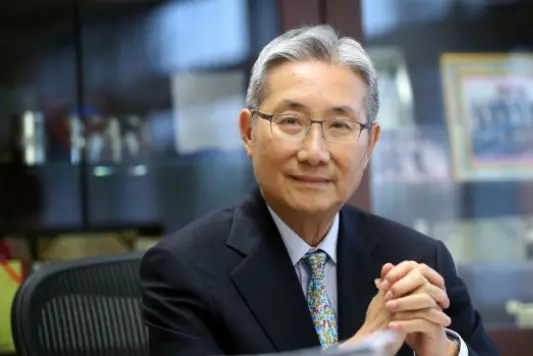Measures to help Hongkongers spend their final days at home or elsewhere outside public hospitals are being explored by the government, Hospital Authority chairman John Leong Chin-yan has revealed to the Post.
A study being conducted by former health minister Yeoh Eng-kiong at Chinese University is expected to give dying patients the option to spend their final moments in familiar surroundings with their family, and ease the strain on public hospitals.
A key idea was to help relatives skip the complicated procedures currently required by law if a patient died at home, including calling police and reporting to a coroner who might order an autopsy, Leong said.
“When a patient dies, it is already very traumatic for the family,” Leong said in an exclusive interview. “No one wants to call police to their home and go through all this.”
The idea of a comfortable home death has been promoted in many Western countries, such as Britain, which has guidelines to help people choose where to die.
But the concept is still relatively new in Hong Kong, where around 83 per cent of some 46,000 deaths every year take place in public hospitals.
This is against the backdrop of overcrowded and understaffed public hospitals, close to breaking point amid an unprecedented surge in demand since the last peak flu season. The trend is expected to deteriorate as the city’s greying population continues to expand rapidly.
In response to the challenge, the government has commissioned Yeoh, now a public health professor, to conduct a quality review that includes end-of-life care. The findings are due to be ready by the third quarter of this year at the soonest.
Leong said palliative care beds were in short supply, with only about 360 in public hospitals for late-stage patients. That meant most patients spent their final days, or even months, in hospitals subsidised by the government at a cost of HK$4,400 per day.
Following a death, medical staff also have to go through the administrative procedure of admitting and discharging the corpse to the hospital’s morgues, which have had an average occupancy rate of around 78 per cent for the past five years.
The new measures, however, would only require an attending doctor providing treatment to sign the death certificate for a patient who died at home, Leong said. That might require an amendment to the existing law, he added, with details yet to be confirmed.
Another proposed measure revealed by Leong was to hire a geriatrician, a specialist in elderly care, in emergency units to identify patients who should be sent to a rehabilitation centre rather than being admitted to hospital.
(SOUTH CHINA MORNING POST)
 简体中文
简体中文

